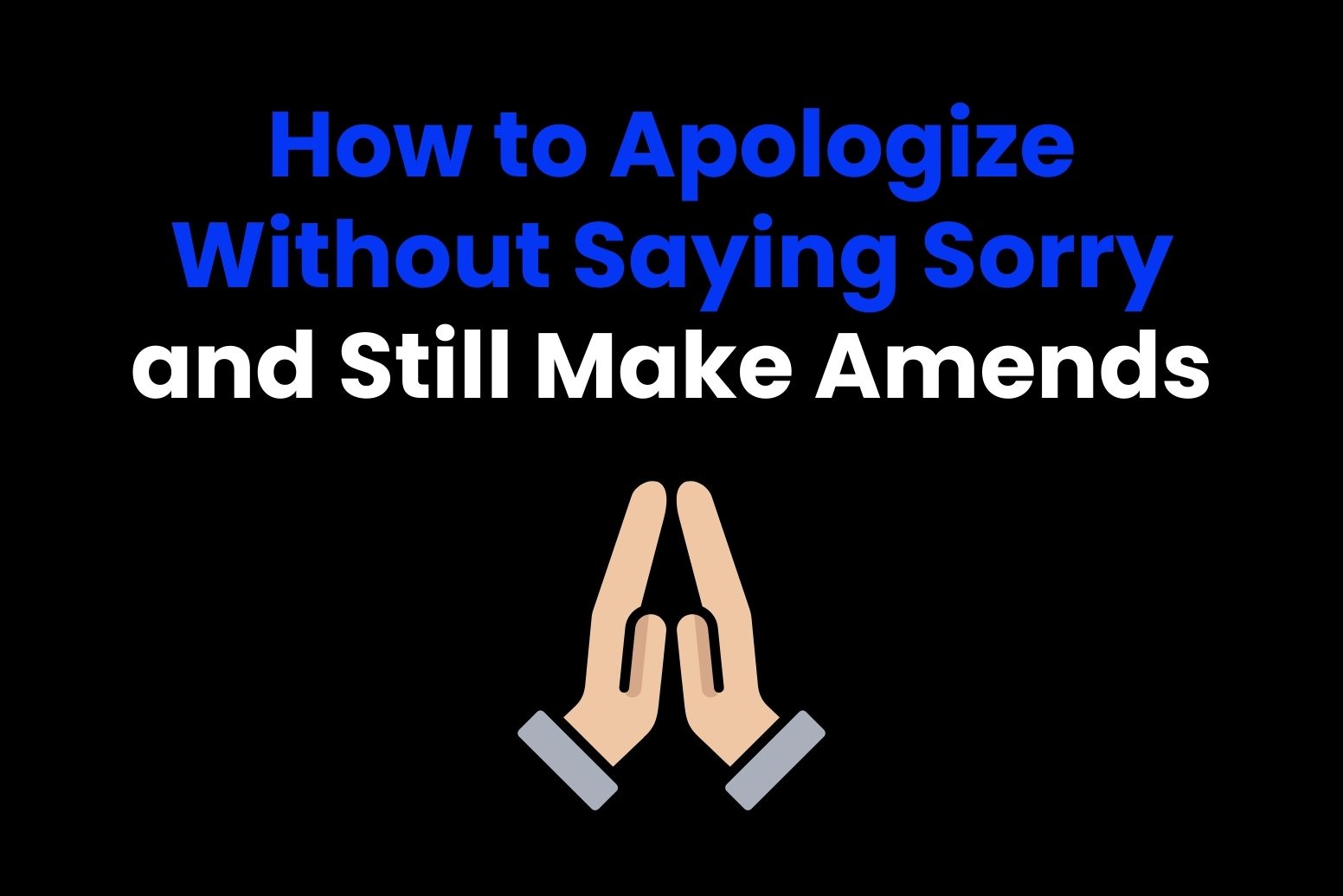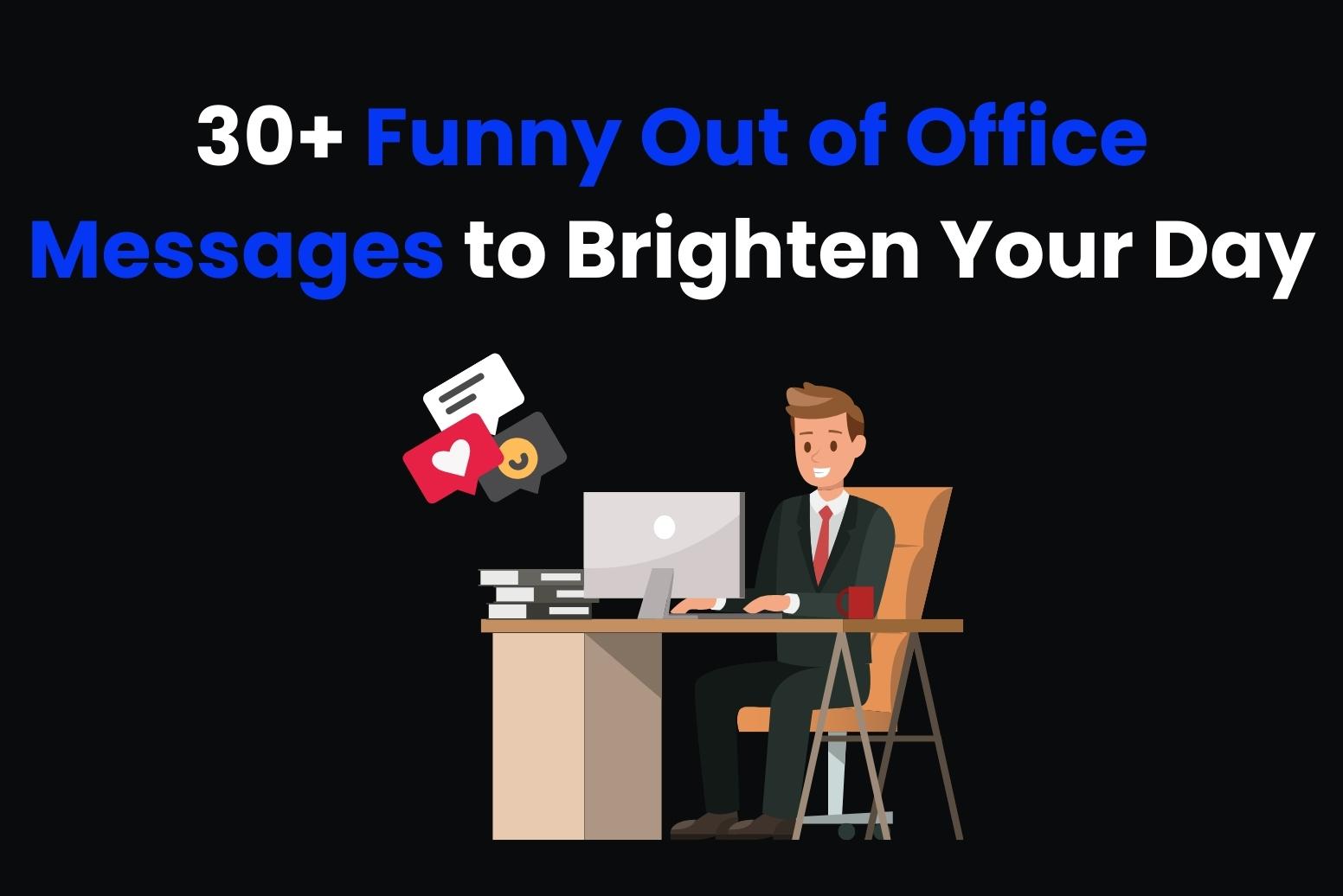Apologies are an integral part of human relationships, but not all of them are born equal since sometimes you need to know how to apologize without saying sorry. That’s because there are times that “I’m sorry” can feel empty or unnecessary.
If you are looking to mend a friendship, repair a professional relationship, or just avoid some really bad clichés, this article offers ways to apologize that are alternatives to saying your “sorries.”
By truly understanding the power of actions and accountability, you can make genuine amends. Let’s see how to handle these moments and leave a lasting positive impression.
Why ‘sorry’ overuse is problematic?
Do you often say sorry when it’s not really the time? Well, over-apologizing might seem like not a big deal. However, it can actually be a problem in your personal and professional life. Also, saying “sorry” out of habit hurts a lot your real ones.
Apologizing too much comes from trying to keep it cool, but it can make you seem unsure of yourself. Imagine this: You apologized for replying late to an email where everything was okay. You meant to be polite, but to others, it might seem like you’re insecure.
Excessive “sorries” will also take the focus off of your strengths. Instead of leading with confidence in your conversations Also, saying sorry too much can make it seem like you’re wrong. This can leave a bad impression.
Practical tips on how to stop over-apologizing
Luckily, you can stop over-apologizing with a few simple steps. Here’s how to feel more confident in what you say:
1. Reframe your language
Instead of apologizing right away, try replacing “sorry” with phrases that acknowledge the situation without hurting your confidence. For instance:
Instead of “Sorry for the delay”, use “Thank you for your patience”.
2. Pause before you talk
Before apologizing, take a moment to think if it’s really necessary.
Are you apologizing for something that was never under your control or merely inconveniencing them slightly?
If so, then rephrase your response or simply let it go.
3. Use apologies where they matter
Save “sorry” for when you truly need it. For example, when you’ve hurt someone’s feelings or made a serious mistake. That’s because the truer the reason, the more sincere your apology will be.
How to apologize without saying sorry in personal relationships
Apologizing doesn’t have to include the word “sorry.” In fact, there are many ways to show your regret.
Also, you can make your connections better and fix problems when you focus on the other person’s feelings. So, here’s how you can do it:
Know the impact of your actions
First, a real apology means recognizing what you did and how it affected the other person. An example is, “I see how my words hurt you” This phrase shows you understand and care. Also, it focuses on their feelings instead of defending yourself.
By taking responsibility for your actions, you show that you understand their point of view.
Clearly express regret
Instead of saying “sorry,” use phrases that show true regret. For example, “I deeply regret what I did,” or “It was wrong of me” takes all the responsibility.
Avoid defensive words, excuses, or putting the blame on others. Your apology should fully accept responsibility without any doubt.
Offer constructive solutions to make amends
After words of regret, let them know you are committed to making things right. Saying something like, “How can I fix this situation?” or “What can I do to regain your trust?” is to say you are ready to take steps toward improvement.
This shows you’re genuine and lets the other person share their needs. Which makes the outcome fair in the best way possible.
How to apologize without saying sorry at work
Nobody’s perfect; even in formal settings, mistakes are bound to happen. But sometimes, saying “sorry” over and over again is not it.
At work, a strong apology is about owning your actions, fixing the issue, and working as a team. Here’s how to do it while building better relationships.
Take responsibility for your actions
One of the most important facets of a professional apology involves taking responsibility for what went wrong. For instance, saying “I take full responsibility” works well without needing to say “sorry.”
Taking the blame in these situations shows that you’re mature and professional. Additionally, it helps to keep trust with colleagues and bosses while showing you’re open to learning and growing in your career.
Present thoughtful solutions
Instead of just pointing the finger out and accepting your mistake, do more by sharing some tips or steps to rectify the problem. You could say, “Here’s what I will do to address this matter.” By offering solutions shows you’re up to fixing issues right away.
Being proactive shows you’re ready to fix problems and help the team come through.
Emphasize teamwork and collaboration
Building professional relationships is super important. Actually, after a mistake, saying, “I value our teamwork and will make sure this doesn’t happen again,” shows you really want a positive workplace.
By focusing on the bigger picture, and team harmony, you show that the success of the group is more important than anything.
The long-term benefits of apologizing without saying “sorry”
Apologies are important for good relationships, but saying “sorry” too much can make it less true. Being more detailed with your apologies makes them more genuine and helps in both personal and work life.
But what is the good side of doing this in a truer way?
Building accountability to trust
Taking responsibility means accepting your actions without just saying “sorry.” For example, saying “I am responsible for my actions” shows you own up to what happened.
This feels more genuine and meaningful. In fact, this builds trust with people because it would be an assurance that honesty and self-improvement will be valued.
Increasing confidence and communication
This will boost your confidence. Actually, by saying fewer sorry for small things is powerful. Using other phrases instead encourages confidence and helps you express yourself better.
For example, instead of saying sorry for interrupting, say, “I value your time and want to add to the conversation.” This helps you communicate better and show respect.
Problem-solving and encouraging teamwork
Apologizing without saying “sorry” too much means offering solutions, showing you’re proactive. For instance, phrases like, “Here’s how I’ll fix this,” show responsibility and a desire to work together.
This approach will help resolve conflicts better and improve teamwork and respect. Which are important for any relationship’s growth.
Creating a more positive atmosphere
Cutting down on unnecessary apologies can change how others see and interact with you. Also, it creates a tone of mutual respect, shifting conversations from self-blame to a more positive approach.
Over time, this contributes to a more positive and empowering atmosphere, both personally and professionally.
The dos and don’ts of how to apologize without saying sorry
An apology without the word “sorry” can be a strong way to show accountability and strengthen relationships.
However, how you go about your apology has much to do with whether it will work or fall flat. Here’s a guide to help you see the dos and don’ts of giving a sincere apology without using the word “sorry.”
Do: Acknowledge the consequences of your actions
A good apology means getting how your actions hurt someone. Also, it should show that one can see what happened from the other side and give them space. “I see how my actions hurt you,” or something like this, opens the person’s eyes.
Taking the blame for your actions builds trust and shows you care about how your behavior impacts others. Additionally, it sets a foundation for fixing the relationship.
Don’t: Make it about you
Avoid taking the focus away from them and their experience. Something like, “I was just frustrated,” or “I didn’t mean to,” lowers the other one’s feelings.
Focus on their feelings instead of explaining your intentions. This keeps the focus on them, making the apology more personal and genuine. By taking responsibility for your actions, you show respect and understanding.
Do: Provide a solution or make amends
A good apology is an act, not just words. Propose a clear solution or make an offer: “Here’s how I will rectify this,” or “Tell me how I can make up for what happened.”.
Offering a solution is proof that you are committed to the resolution and that it will never happen again. This also gives more meaning to an apology, as it shows your willingness to actively take steps toward reconciliation.
Don’t: Overexplain or become evasive
When you apologize, the message should be short and simple. Also, it should focus on the other person’s feelings. The situation should not be explained so much, nor should the blame be shifted.
The goal is to give a clear and sincere apology, explaining how they’ve been hurt and how you’ll fix it. Also, don’t make it so hard, as this can weaken the apology and create more tension.
Email templates for apologizing without saying sorry
Apologizing without saying “sorry” is a good way to take responsibility while staying professional. Also, no matter if it’s at work or with a friend, it’s important to own up to your actions and change.
Here are some email templates that can help you communicate your message clearly and respectfully.
Template 1: Personal apology to colleagues in a professional setting
Subject: Becoming accountable for my own recent actions
Dear [Recipient’s name],
Let me address the [situation/event] that just happened and how it affected you and the team. I realize my actions caused [describe what happened], and I wanted to reassure you that was never my intention.
Next, I am taking [specific steps] to resolve the issue and prevent it from happening again. Therefore, let me know if there’s anything I can do.
Honestly, I value this collaboration very much and will do all that is in my powers to make sure we keep on track with everything henceforth.
Best regards,
[Your full name]
Template 2: Apologize to a friend personally
Subject: I want to make things right.
Dear, [Friend’s name]
The reason I am writing to you is that lately, I have been thinking much about our recent conversation, and I did notice the impact my words or actions must have caused in you. So, I know I failed you.
That is why I am committed to making sure it does not happen the second time. Again, I will like to find out what I can do to make things right.
As a matter of fact, I value your friendship, and I am here to listen to what you have to say and take steps to restore our bond of trust.
I also appreciate your understanding and patience during this time.
Warmly,
[Your name]
Looking how to apologize without saying sorry? Try Arvin AI!
The hard part for some is just finding the words to say. You don’t have to struggle to find the right words to express regret or deliver a sensitive message. Actually, with good AI tools, you’re easily able to get an idea or feelings clearly and to the point.
Arvin AI gives you an intelligent solution with the development of GPT-4. Also, it helps create very personal and impactful messages, truly reflecting your feelings. Even if it’s a personal apology, this tool will help you find the right words and get your message across clearly every time.
However, what really sets this tool apart is the range of text options for your needs.
Everything you need is here, from sincere apologies to careful phrases. Plus, the translation feature helps you reach more people.
This makes your message easier to understand for more people. On top of that, the live support is available to make sure your message sounds just right. If any changes are needed, they can be made right away. So, you’ll save time and effort, and with Arvin AI, your message will still be clear and kind.
FAQs – How to apologize without saying sorry
Why apologize without saying “sorry”?
In many cases, not saying “sorry” but still taking responsibility can be the best option. This is true when you own up to your mistake without being defensive. Also, it shows you’re mature. Which also allows to see how your actions made others feel.
Can apologizing without using the word “sorry” be insincere?
If done right, knowing how to apologize without saying sorry can feel sincere because it shows you understand the other person’s feelings and want to fix things. However, it can feel insincere if you avoid responsibility or use excuses.
How would you not sound defensive when apologizing without using the word “sorry”?
Well, to avoid sounding defensive, don’t say things like “I didn’t mean to” or “If you had just.” Instead, focus on how the other person feels and take responsibility. For example: “I get why that upset you, and I’ll do better next time.”
How to offer a solution or make amends without using the word “sorry”?
Apologizing is not needed quite as much as what you will be able to do to fix it. Instead of saying “sorry,” one could say, “Here’s what I’ll do to make things right,” or “I’m going to work on fixing this by.”
This makes the recognition of the issue come across more as an active seeking of a solution, which for many is more helpful than words alone.
What if someone doesn’t want to hear excuses?
If they don’t want to hear any excuses, then it’s better to let them talk about their feelings and the solution. You might say, “I know this isn’t the time you want to hear explanations, but what I do want you to know is I will make sure this gets fixed,” or “I can see why this upsets you. My concern is how do I make sure this never happens again.”
That shows that you heard their feelings and shows concerns about how to prevent a similar issue from happening.
Does it still work if I don’t say “sorry”?
It’s common to feel that not always using the word “sorry” can be a whole lot more sincere because it talks right to responsibility and actually starts some real change in action: in the way one would have thought, “I am fully responsible for what happened.” You show a deeper level of commitment to change than maybe any number of quick apologies.






